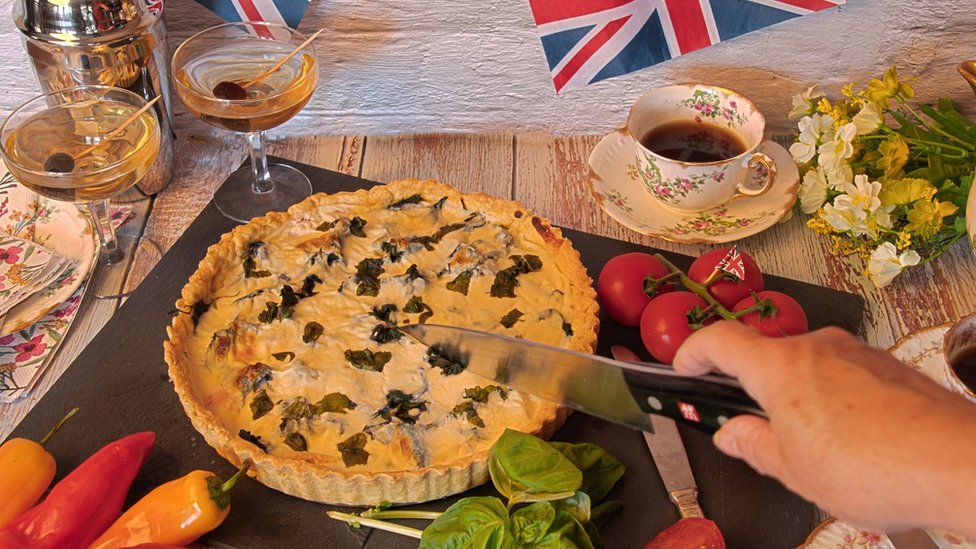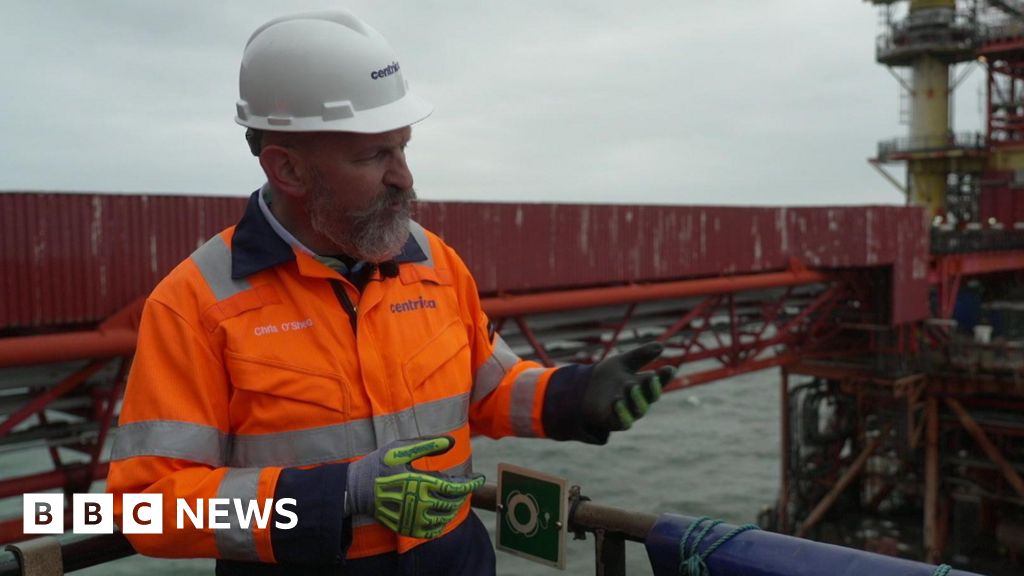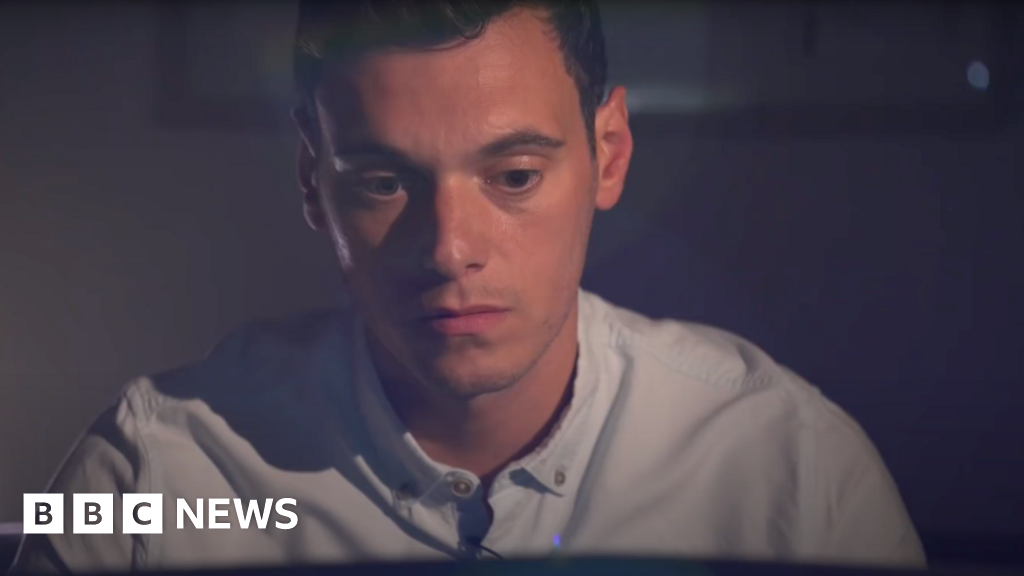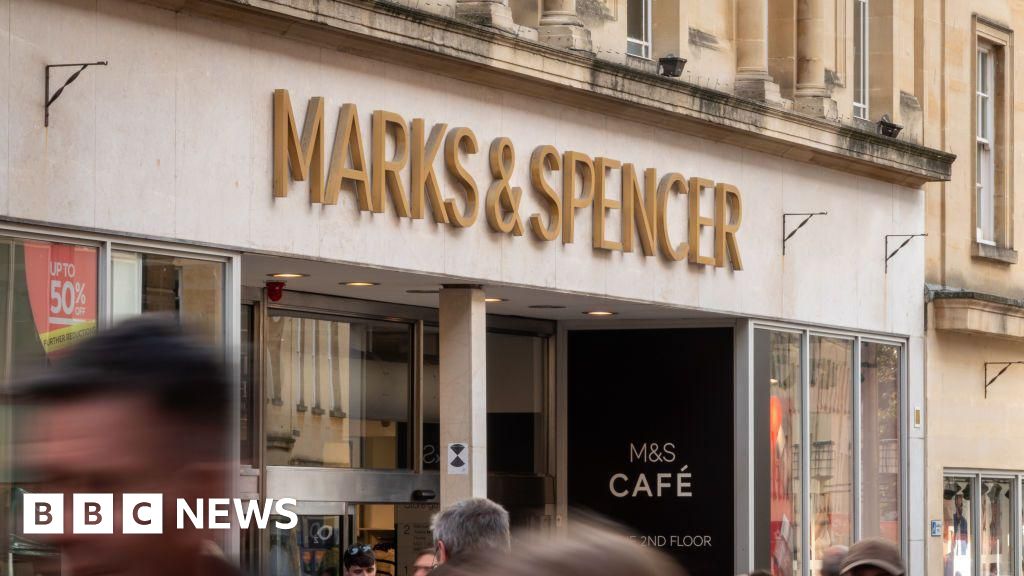ARTICLE AD BOX
 Image source, Getty Images
Image source, Getty Images
By Noor Nanji
Business reporter, BBC News
Shoppers stocked up on wine, fresh cream and pastry over King Charles's coronation, with sales of those products soaring, figures suggest.
Research firm Kantar said people "got into the spirit" of the occasion and had a go at making the official Coronation quiche.
It also said food inflation ticked lower in the four weeks to the middle of May, but remains "incredibly high".
At 17.2%, it is still the third fastest rate Kantar has recorded since 2008.
Inflation is the rate at which prices are rising. A drop in inflation does not mean prices are falling, but just that the rate of price rises is slowing.
Chancellor Jeremy Hunt is meeting food manufacturers on Tuesday to discuss the cost of food and look for ways to ease the pressure on households.
Fraser McKevitt, head of retail and consumer insight at Kantar, said the fall in grocery price inflation was "without doubt welcome news for shoppers but it is still incredibly high".
Rising food prices are helping to fuel stubbornly high inflation, which hit 10.1% in March. The latest official figures on Wednesday are expected to show inflation fell during April.
Despite the price pressures, people made the most of the extra bank holiday this month, Kantar's research suggests, with an extra £218m passing through tills during the week of the Coronation.
Sparkling and still wine proved popular, with sales rising by 129% and 33% respectively.
People also stocked up on ingredients to make the official Coronation quiche with sales of chilled pastry soaring by 89%, while fresh cream sales were up by 80% and frozen broad beans by 57%.
"We'll have to wait and see whether it becomes as much loved as its 1953 counterpart Coronation Chicken and cements its place on the British picnic and garden party menu," Mr McKevitt said.
Food prices have surged in the last year after soaring energy prices drove up the cost of production and supply chains were disrupted.
Wholesale prices have been falling, but there a time lag before that feeds through to prices on supermarket shelves.
Last week, the prime minister held a food summit at Downing Street, and on Tuesday, the chancellor will meet food manufacturers to discuss the persistently high prices.
Mr Hunt will also meet the Competition and Markets Authority about the scope of its investigations into the fuel and grocery markets.
According to Kantar's data, this is the second month in a row that like-for-like grocery price inflation has fallen.
But households are still facing an increase of £833 to their annual grocery bills if they do not "shop in different ways", Mr McKevitt said.
Shoppers are finding ways to save money, including by opting for supermarkets' own-brand equivalents, he said.
He added that supermarkets are battling to offer value to shoppers to lure them through their doors.
"In the fierce contest for market share, eyes have been on the dairy aisle in particular, where the average cost of four pints of milk has come down by 8 pence since last month," he said.
"Prices are still much higher than they were 12 months ago, at £1.60 currently versus £1.30 last year, but retailers know just how important it is to offer even small savings on staple products like milk to get customers through the door."
In April, Aldi, Lidl and Asda joined rival supermarkets Sainsbury's and Tesco in cutting the price of milk.
While the drop will be welcomed by people struggling with higher living costs, milk still costs more than double the average price before Covid.
Taken as a whole, Waitrose benefited from a sharp uplift in sales in the week of the coronation, while Aldi was the fastest growing grocer this month, according to Kantar.

 1 year ago
39
1 year ago
39








 English (US) ·
English (US) ·